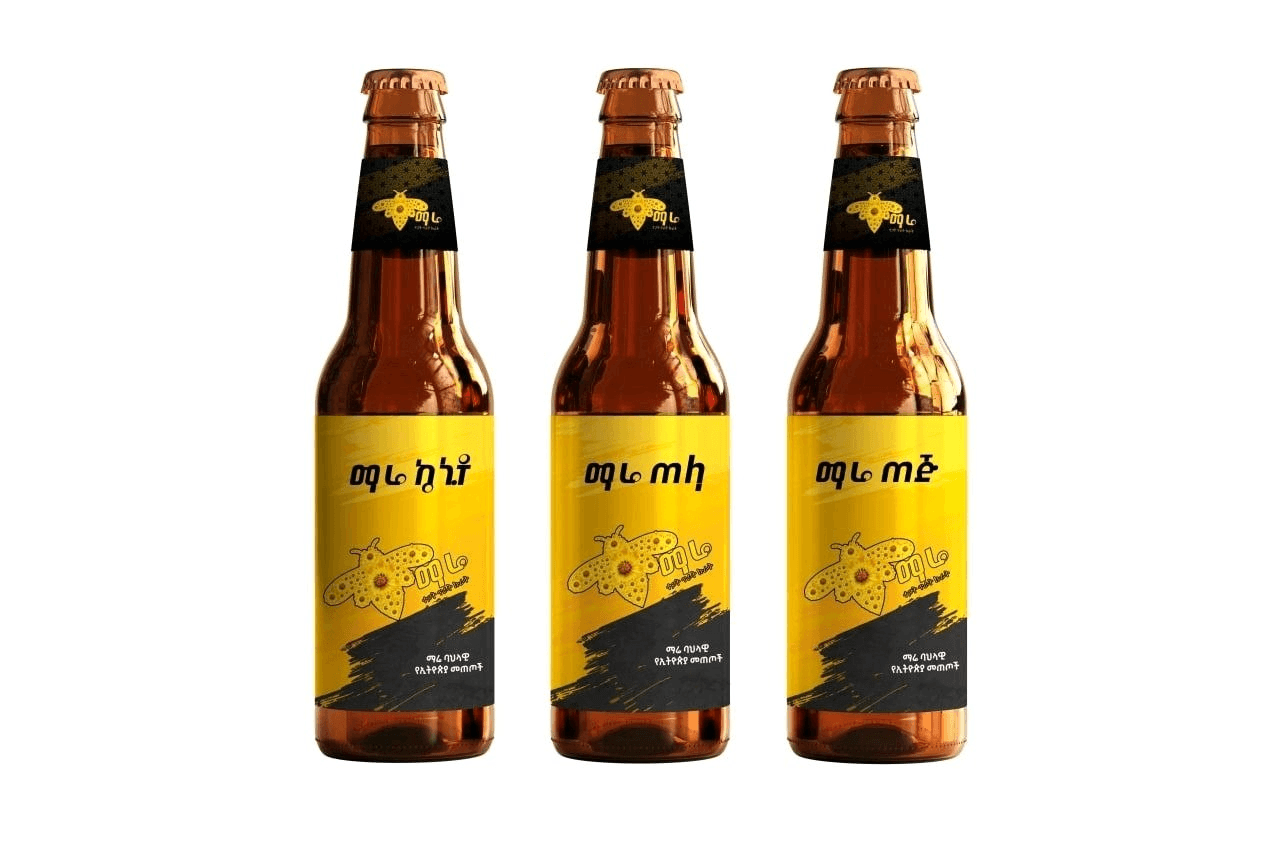Progress for 0 ad
Progress for 1 ad
Progress for 2 ad
Progress for 3 ad


Kaleab Girma
Addis Ababa, Ethiopia

Tej is a traditional honey wine that holds a special place in the hearts of Ethiopians. It is made by mixing together honey, water, wild yeast, twigs, and the leaves of Gesho, which acts as a natural fermentation agent. The mixture is left to ferment for several weeks, resulting in a sweet and slightly fizzy beverage.
Tej is often consumed during celebrations and special occasions and is considered an important part of Ethiopia’s cultural identity.
Despite its cultural significance, the large-scale commercialization of Tej has been a challenge for many years. One of the main challenges is the lack of consistency in the final product, as the fermentation process can be unpredictable, leading to variations in taste and alcohol content.
Another challenge is scaling production, as traditional Tej production is often small-scale and labor-intensive, making it difficult for producers to meet the growing demand for the beverage.
In recent years, there have been efforts to modernize the production of Tej, and one such effort is Mare Breweries. Founded by a group of chemical engineers, Mare is a small-scale brewery that is relatively new and in its initial phase, having recently incorporated after the successful completion of pilot-scale production trials.
Co-founded by Ermiyas Wakshuma, Hamere Gashawu, Martha Samuel, and Kebron Getachewu, Mare’s journey began in university classes. Ermiyas, the CEO of Mare, says that the startup started three years ago when he was studying chemical engineering at Addis Ababa Science and Technology University (ASTU).
“As part of my courses, I was experimenting and researching beer production in labs before I decided to change my focus to traditional beverages,” Ermiyas told Shega.
Mare uses modern fermentation techniques and equipment, such as temperature-controlled fermentation tanks and pH meters, to ensure a more consistent product. These modern techniques have helped to improve the quality and shelf life of its Tej, which is around 6 months.
The team was also able to shorten the fermentation period of Tej from one month to around three weeks, with the goal of eventually reducing it to two weeks, the same amount of time it takes for beer to ferment. Mare Tej has an alcohol content ranging from 7 to 8 percent, and the team claims that it has a higher and more consistent quality.
After successful trials, the startup decided to take Mare Tej to the public and explore its commercial potential. With a 50-50 profit sharing agreement entered with the University, Mare entered pilot production using the university lab equipment.
In its pilot phase, Mare sold its products to customers who placed orders for special occasions such as weddings, graduations, holidays, and birthdays.
“During this phase, we were able to sell around 200 liters of Tej,” Ermiyas said.
However, as the university’s resources cannot be used for mass commercialization, Mare had to establish its own lab and is now in the process of doing so, with research and development still at the heart of the startup.
Mare initially plans to produce four different products, primarily focusing on alcoholic products. These include Tej and Tella, as well as alcohol-free products such as Berezh and Kento. The products will be sold in different-sized containers, ranging from the traditional 330-ml drink to the 500-ml packed glass bottle.
Mare also aims to promote Tej as a high-quality artisanal product, positioning it as an alternative to other types of wine. To achieve this, Mare plans to use high-quality inputs and experiment with different flavor profiles. Mare’s products come in three flavors: orange, coffee, and vanilla.
Mare plans to distribute its products in Addis Ababa to hotels, restaurants, bars, grocery stores, supermarkets, and liquor stores. The company is also considering opening its own brewpub, where customers can visit the production site and sample the high-quality brew.

Mare expects its products to sell for around 180 birr per liter, which takes into consideration the cost of production and distribution. The main ingredient in Tej, honey, is sold for around 500 birr in the market.
Raising funding has been a major challenge for Mare, according to Ermiyas. “Lab equipment is very expensive to acquire for a startup, and we have been struggling to land investors,” he said.
Ermiyas also pointed out that traditional brewery has been largely neglected by researchers and academia, and more work needs to be done to understand these drinks and tap into their potential.
Ethiopia has significant potential for honey production due to its diverse climate and vegetation resources for beekeeping. The country has around 6 million managed honey bee colonies and nearly 10 million feral colonies (bees outside of human management).
The annual honey production potential in Ethiopia is estimated to be 500,000 tn of honey, but the current yearly production is only around 10% of this potential.
As the demand for Tej continues to grow, efforts like Mare’s will likely continue to evolve to keep Tej a beloved and important part of Ethiopian culture.
“Tej is beyond our startup,” said Ermiyas. “It’s a national symbol with great significance. It’s a product that can put Ethiopia on the global map. The sooner we perfect its production, the sooner we all rip the benefits.”
👏
😂
❤️
😲
😠

Kaleab Girma
Kaleab Girma, an Addis Ababa-based reporter and researcher, with over six years of experience in the field. He currently serves as Shega's Editor-in-Chief and specializes in reporting on small businesses, innovation, technology, and startups in Ethiopia.
Your Email Address Will Not Be Published. Required Fields Are Marked *